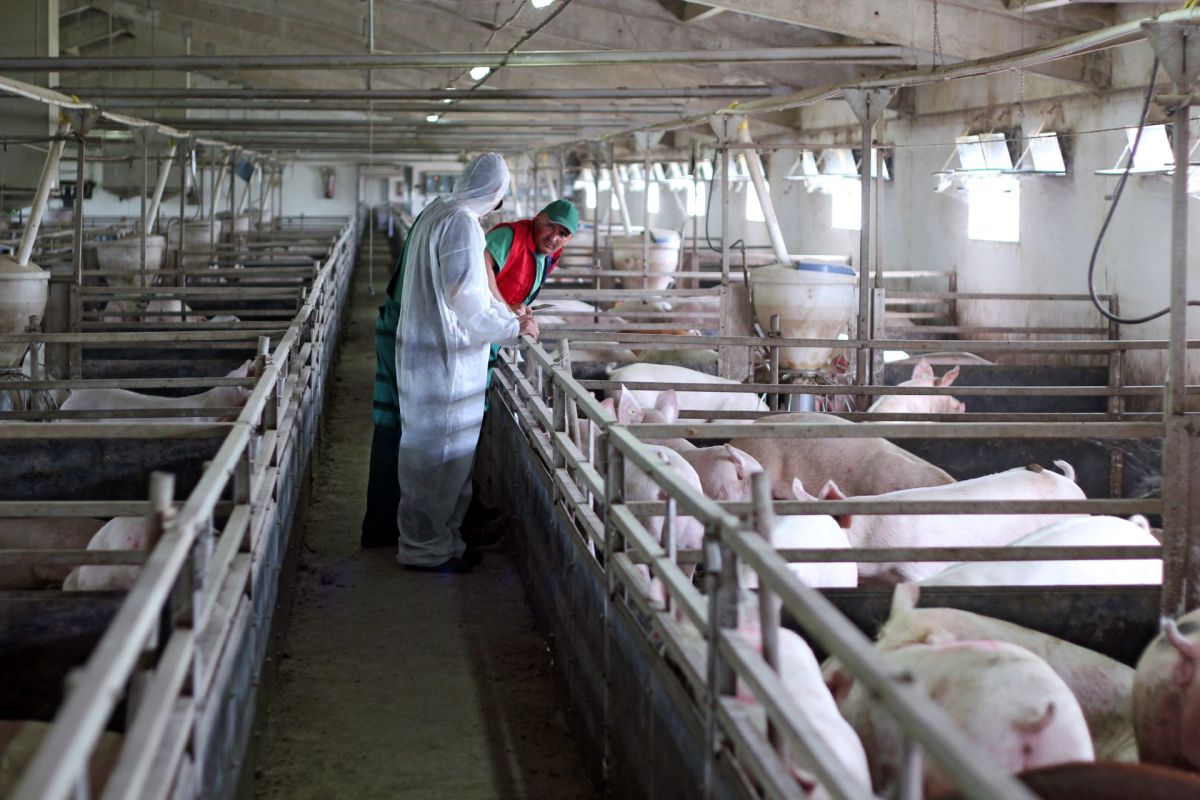After the coronavirus pandemic, the world is on high alert for the next global health emergency.
Scientists are now warning about the risk to humans from the food production network, and factory farms are among the most concerning areas that could spawn the next virus.
What's happening?
At the Compassion in World Farming event in London in May 2023, scientists, policymakers, and farmers met to discuss challenges within the industry and potential threats to human health.
Among the issues discussed was the use of antibiotics in factory farming, which has been found to lead to a potential problem when humans eat meat.
"Most antibiotic resistance in human medicine is actually due to the human use of antibiotics," scientific adviser at the Alliance to Save Our Antibiotics Cóilín Nunan told Euronews.green. "However, there is clear evidence that the farm use of antibiotics is also contributing, not just to antibiotic resistance in farm animals, but also to infections in humans."
With animals kept in close quarters on factory farms, hygiene standards are poor, and disease spreads more easily, so antibiotic use is frequent.
Why is this a concern?
The World Health Organization has described antimicrobial resistance (AMR) as a "silent pandemic" and one of the top 10 global public health threats. Bacterial AMR has already been estimated to kill 1.3 million people a year.
If antibiotics are overused in farming, it could impact humans higher up the food chain as bacteria develop resistance to the drugs and multiply.
"If some of the bacteria have developed resistance, then these bacteria are unaffected by the antibiotic and can continue to proliferate, spreading from human to human, or from animal to animal, or from animal to human," Nunan explained, per Euronews.green.
Nunan also described how animals fed antibiotics could end up with resistant bacteria in their gut at slaughter, leading to potential contamination of the carcass. This can spread to humans when handled or when undercooked meat is eaten.
Further, resistant bacteria can also enter the food system via animal manure, which is used to fertilize crops.
How can we prevent a "silent pandemic"?
Controlling AMR is essential, as experts predict it "could cause up to 10 million deaths a year by 2050," per Euronews.green.
Nunan noted that better animal husbandry, such as providing animals with more space and improving hygiene, is one of the keys to preventing the spread of disease and, thus, the overuse of antibiotics. But there are already positive changes happening in the farming industry.
The EU has banned all forms of routine antibiotics on farms and the use of antibiotics to make up for poor farm husbandry.
The U.K. has also seen a 55% decrease in antibiotic use on farms since 2014, Euronews.green reported.
Consumer choices like buying responsibly sourced meat can also make a difference and discourage cheap and intensive farming methods that lead to animal disease and potential problems later on in the food chain.
Join our free newsletter for weekly updates on the coolest innovations improving our lives and saving our planet.









